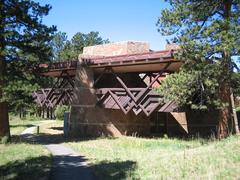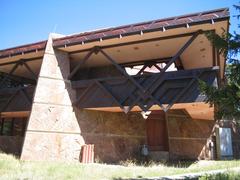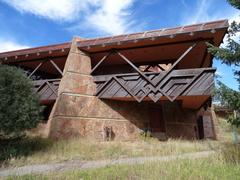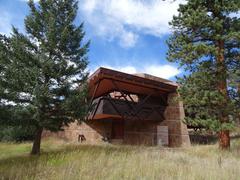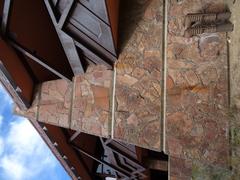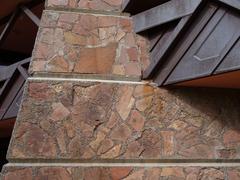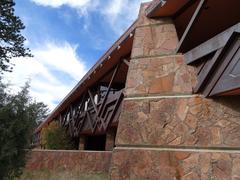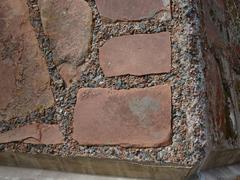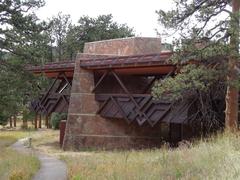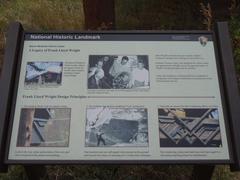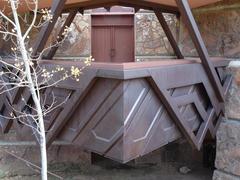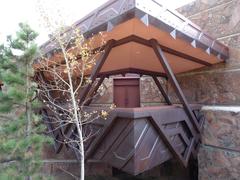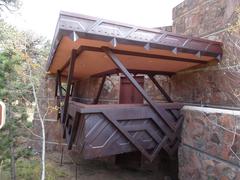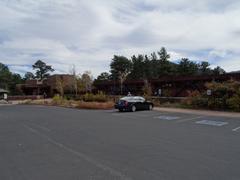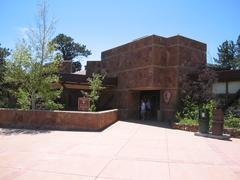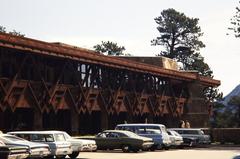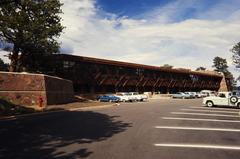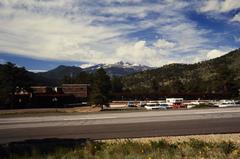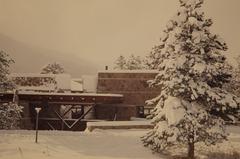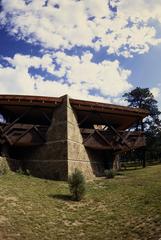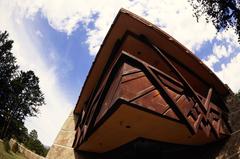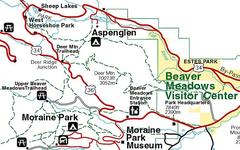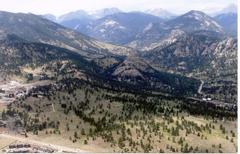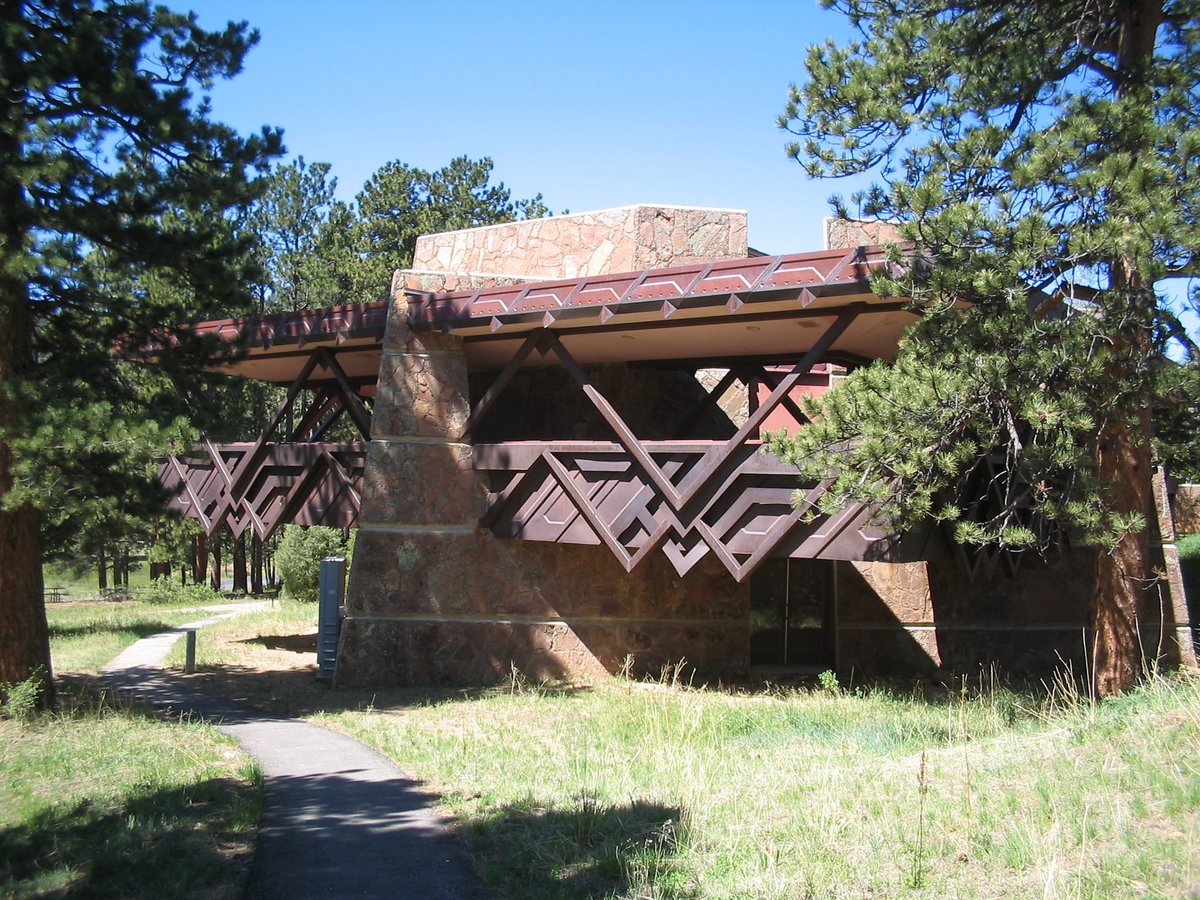
Beaver Meadows Visitors Center Visiting Hours, Tickets, and Historical Sites in Estes Park
Date: 18/07/2024
Introduction
The Beaver Meadows Visitors Center, located in Estes Park, Colorado, serves as the primary gateway to the Rocky Mountain National Park. Established in 1915, the park is steeped in rich history, originally inhabited by Native American tribes such as the Ute and Arapaho. The center itself, completed in 1967, is an architectural marvel designed by Taliesin Associated Architects, a firm founded by the legendary Frank Lloyd Wright. This guide provides comprehensive information about visiting the Beaver Meadows Visitors Center, including its history, visitor tips, ticket prices, operating hours, and nearby attractions. Whether you are keen on exploring cultural exhibits, participating in ranger-led programs, or embarking on scenic hikes, this guide will help you plan your visit effectively. For more detailed information, you can always refer to the National Park Service website.
Table of Contents
- Introduction
- History and Significance
- Visitor Information
- Cultural and Historical Exhibits
- Conservation and Education
- Impact on Local Economy
- Future Developments and Sustainability
- Nearby Attractions
- FAQ
- Conclusion
History and Significance
Early History and Establishment
The Beaver Meadows Visitors Center’s history is deeply intertwined with the establishment of the Rocky Mountain National Park, designated as a national park on January 26, 1915. The area was originally inhabited by Native American tribes, including the Ute and Arapaho, who utilized the land for hunting and gathering.
Architectural Significance
The Beaver Meadows Visitors Center is renowned for its architectural significance. Designed by the prominent architectural firm Taliesin Associated Architects, founded by Frank Lloyd Wright, the center exemplifies the principles of organic architecture. Completed in 1967, the building features low, horizontal lines and extensive use of natural materials, such as stone and wood, blending seamlessly with the surrounding landscape.
Visitor Information
Visiting Hours
The Beaver Meadows Visitors Center is open daily from 8:00 AM to 5:00 PM. Hours may vary seasonally, so it’s advisable to check the National Park Service website for the most up-to-date information.
Ticket Prices
Entry to the Beaver Meadows Visitors Center is free, but there is an entrance fee for Rocky Mountain National Park. Tickets can be purchased at the entrance or online. Prices are as follows:
- $25 per vehicle for a one-day pass
- $35 per vehicle for a seven-day pass
- $70 for an annual pass
Amenities
The center features a large auditorium where visitors can watch informative films about the park’s history, geology, and wildlife. Additionally, the center offers a well-stocked bookstore and gift shop, where visitors can purchase educational materials, maps, and souvenirs. The knowledgeable staff at the center are available to provide guidance and answer questions.
Cultural and Historical Exhibits
The visitors center houses various cultural and historical exhibits highlighting the rich heritage of the Rocky Mountain region. These exhibits showcase artifacts and stories from the Native American tribes who once inhabited the area, as well as early settlers and pioneers who played a significant role in the development of Estes Park. The center’s exhibits also delve into the history of the park’s establishment and the efforts of conservationists like Enos Mills, often referred to as the “Father of Rocky Mountain National Park.”
Conservation and Education
The Beaver Meadows Visitors Center plays a crucial role in the conservation and education efforts of the Rocky Mountain National Park. The center serves as a hub for visitors to learn about the park’s diverse ecosystems, wildlife, and conservation initiatives. Interactive exhibits and educational programs provide valuable insights into the park’s natural and cultural history. The center also offers resources and information on responsible outdoor practices, promoting sustainable tourism and environmental stewardship.
Impact on Local Economy
The Beaver Meadows Visitors Center significantly impacts the local economy of Estes Park. As the primary entry point to the Rocky Mountain National Park, the center attracts many visitors each year. This influx of tourists contributes to the economic vitality of the region, supporting local businesses, hotels, restaurants, and other tourism-related enterprises.
Future Developments and Sustainability
Looking ahead, the Beaver Meadows Visitors Center is committed to embracing sustainable practices and enhancing the visitor experience. Plans for future developments include the incorporation of renewable energy sources, such as solar panels, to reduce the center’s carbon footprint. Additionally, efforts are underway to expand educational programs and interactive exhibits.
Nearby Attractions
While visiting the Beaver Meadows Visitors Center, consider exploring other nearby attractions in Estes Park. Popular sites include the Estes Park Aerial Tramway, the Stanley Hotel, and the Estes Park Museum. These attractions offer additional insights into the area’s rich history and natural beauty.
FAQ
Q: What are the operating hours of the Beaver Meadows Visitors Center?
A: The center is open daily from 8:00 AM to 5:00 PM, but hours may vary seasonally. Check the National Park Service website for current hours.
Q: Do I need to purchase a ticket to enter the Beaver Meadows Visitors Center?
A: Entry to the center is free, but there is an entrance fee for Rocky Mountain National Park.
Q: Are guided tours available at the Beaver Meadows Visitors Center?
A: Yes, guided tours are available and can be arranged at the center.
Q: What amenities are available at the Beaver Meadows Visitors Center?
A: The center features an auditorium, bookstore, gift shop, and knowledgeable staff to assist visitors.
Conclusion
The Beaver Meadows Visitors Center stands as a testament to the rich history, architectural innovation, and conservation efforts that define the Rocky Mountain National Park. Its significance extends beyond its role as a visitor center, serving as a symbol of the enduring relationship between humans and the natural world. Through its educational programs, cultural exhibits, and commitment to sustainability, the center continues to inspire and educate visitors from around the world.
For more information, visit the National Park Service website or follow Rocky Mountain National Park on Facebook and Twitter.
